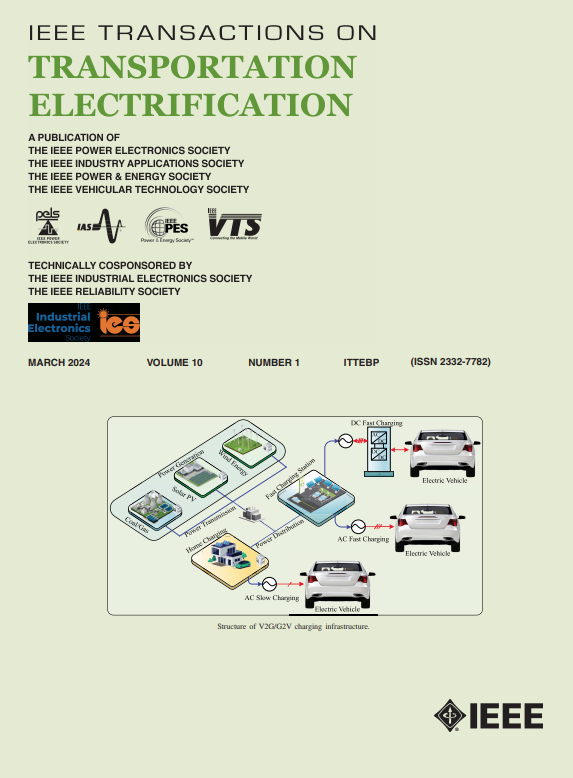System Efficient Energy Regulation and Control for Reversible Substations in Urban Rail System
IF 7.2
1区 工程技术
Q1 ENGINEERING, ELECTRICAL & ELECTRONIC
IEEE Transactions on Transportation Electrification
Pub Date : 2024-12-17
DOI:10.1109/TTE.2024.3519336
引用次数: 0
Abstract
The system efficiency of reversible substations (RSSs) in urban rail transit power supply systems has garnered significant attention. In particular, reverse power flow from the main substation (MS) has been observed in the real world, adversely impacting system efficiency. This article proposes a novel power supply structure for RSSs that effectively reduces reverse power flow. To further enhance system efficiency, an optimal model is established by leveraging the control characteristics of RSSs. Then, a system efficiency energy regulation and control framework considering complex scenarios is presented, with the lowest system losses as the optimization objective. The modified Cheetah Optimizer algorithm is adopted to optimize the control parameters of reversible converters (RCs). Simulations of actual engineering cases are conducted, and the results demonstrate the effectiveness of the proposed power supply solution and energy regulation control in various scenarios. The proposed method can improve energy efficiency by up to 3.25% and 2% compared with nonoptimized and existing offline optimized methods, and this value varies depending on the scenario. Additionally, performance analysis and evaluation highlight the fundamentals of energy regulation in enhancing system efficiency, including balancing bus load, appropriately increasing catenary voltage, and adjusting the proportion of regenerative braking energy (RBE) between the ac and dc sides based on different situations.城市轨道系统可逆变电站的系统高效能量调节与控制
本文章由计算机程序翻译,如有差异,请以英文原文为准。
求助全文
约1分钟内获得全文
求助全文
来源期刊

IEEE Transactions on Transportation Electrification
Engineering-Electrical and Electronic Engineering
CiteScore
12.20
自引率
15.70%
发文量
449
期刊介绍:
IEEE Transactions on Transportation Electrification is focused on components, sub-systems, systems, standards, and grid interface technologies related to power and energy conversion, propulsion, and actuation for all types of electrified vehicles including on-road, off-road, off-highway, and rail vehicles, airplanes, and ships.
 求助内容:
求助内容: 应助结果提醒方式:
应助结果提醒方式:


